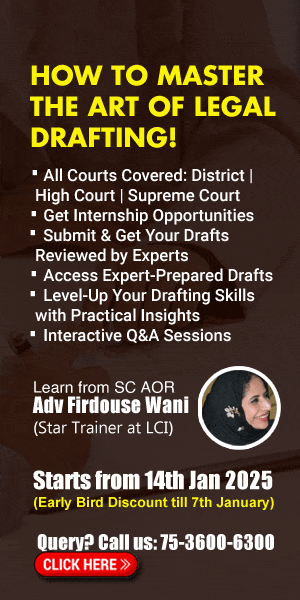Saturday, January 23, 2010
SUPREME COURT OF INDIA: a good case TO study; 21 ORDERS in ONE page
a CLASSIC case study of SLP (Civil) 14983 of 2005 in Supreme Court of India.
An SLP (Special Leave Petition) 14983 was filed before Supreme Court (SC) on 09.05.2005, challenging the order passed by Bombay High Court.
The first hearing took place on 05.08.2005.
The last hearing took place on 15.01.2010.
In all, marathon 21 hearings were held before various Benches of the SC, including above two hearings. In hearing on 16.11.2009, just prior to concluding hearing on 15.01.2010, the Petitioner, on his special request, were allowed to file Rejoinder and additional documents. On 15.01.2010, the advocates for the Petitioner sought permission to withdraw the petition as they wish to move the Bombay High Court.
During this hearing, the Interveners in this case brought to the notice of presiding Judges, the serious irregularities on the part of Petitioners and also brought to the notice the active collusive collaboration of Petitioners and Respondents in the case. It was vehemently stated that Petitioner is merely misusing the court forum and has deliberately keep pushing the matter for eventual collapse. It was again vehemently alleged by Interveners that the Petitioner has done nothing in the last 20 hearing spanning nearly 5 years. It was vehemently brought to the notice of the presiding Judges that both Petitioners and Respondents are suppressing crucial facts, the facts they have suppressed before Bombay High court too, and misled the Bombay High court to pass a false order. However, the above allegations of Interveners amounts to criminal contempt of the court, both of Bombay High Court and of Supreme Court, the presiding Judges of SC, contrary to obvious expectation, were seems to be not shocked by the serious allegations made, alonwith documentary evidences, against both the litigants, the Petitioners & the Respondents. The presiding judges gave a cold response to these allegations.
The presiding Judges, notwithstanding the waste of precious time of the SC in marathon 21 hearings, granted permission to the petitioners to withdraw the case. In 21 marathon hearings, which took invaluable time of the SC, the issue before the court has successfully maintained no progress.
The Petitioner, who came to SC challenging HC order, pleaded on 21st hearing that he wants to go to HC for relief. The presiding Judges readily granted permission and they thought fit not to ask the Petitioner, then why did they knocked SC doors in the first place, and why did they wasted precious time of the court that were spent in 21 hearings. The presiding Judges thought fit not to seek any clarifications from the Petitioners and from Respondents of serious allegations levelled against them by the Interveners.
The Bench of CJI K G Balakrishnan & Justice Deepak Verma were presiding the Bench on 15.01.2010. The issue involved was allotment of land to the Petitioner valued at about Rs.100 crores. The land is reserved for building Institution of Higher Learning, where a beautiful Mall and Residential buildings has come up, but no Institution of higher learning has come so far.
The Respondents were famous Bombay Municipal Corporation and Petitioners were an Education Trust. The Interveners was a concerned managing committee member of the said Education Trust.
Wondering if this is the manner our SUPREME APEX COURT deliver JUSTICE. THEN WHAT TO EXPECT FROM LOWER COURTS OF THE COUNTRY. SUPREME COURT is not ONLY a noun, it is an adjective TOO.
WHEREAS THIS COURT IS TIME & AGAIN SEEN PASSING STRICTURES ON GOVT FOR NOT OBEYING THE DIRECTIONS OF LAW, AND HERE THIS COURT ITSELF HAS GIVEN PERMISSION AND CONVENIENTLY DISREGARDING THE DIRECTIONS OF LAW.
Order 17, Rule 1, CIVIL PROCEDURE CODE 1908 does not allow more than 3 adjournments and is to be read with the proviso to Order 17, Rule 2 where Clause (b) stipulates that no adjournment shall be granted at the request of a party, except where the circumstances are beyond the control of that party That although however, in practice, adjournments are sought and obtained at the asking and other delays are being allowed with impunity or at very nominal costs, if any. That this is the situation prevailing in spite of this Court having held in Salem Advocate Bar Association, Tamil Nadu Vs. Union of India (UOI), (2005) 6 SCC 344, that “…grant of any adjournment let alone the first, second or third adjournment is not a right of a party. The grant of adjournment by a court has to be on a party showing special and extraordinary circumstance. It cannot be routine. While considering prayer for adjournment, it is necessary to keep in mind the legislative intent to restrict grant of adjournments.”
THE MAXIMUM LOSS: A DECADE IS LOST IN THE USELESS COURT BATTLE. HAD THE HIGHER EDUCATIONAL INSTITUTION WAS BUILT IN 1999 OR 2000, AT THIS TIME TODAY, AT LEAST 10 THOUSAND CHILDRENS WOULD HAVE SHAPED THEIR LIFE CAREERS AND WOULD HAVE CONTRIBUTED TO THE DEVELOPMENT OF ECONOMY. THE EDUCATIONAL INSTITUTION APART FROM THIS WOULD HAVE CREATED EMPLOYMENT FOR 100 PEOPLE, AND SUSTAINING 100 FAMILIES.
In my FIRM view: THE HONORABLE PARLIAMENTARIANS OF INDIA, WHILE THEY MAY LEAVE ASIDE IF THE JUDGMENT OF THE COURT IS ON MERIT OR NOT, BUT THEY SHOULD SEEK EXPLANATION FROM THE SUPREME COURT OF INDIA AS HOW THEY CAN IGNORE THE LETTER OF THE LAW AS CONTAINED IN CIVIL PROCEDURE CODE (CPC) OF 1908. THIS STYLE OF FUNCTIONING OF APEX COURT OF THE COUNTRY IS NOT ACCEPTABLE.
THE HONOURABLE PARLIAMENTARIANS ARE REQUESTED TO SECURE ACCOUNTABILITY FROM THE MEN AT HELMS OF JUDICIARY.
WHEREAS THE JUDICIARY IS TO ADMINISTER JUSTICE ACCORDING TO THE ESTABLISHED LAWS PASSED BY THE PARLIAMENT AND BY THE STATE LEGISLATURES, HOW THEY CAN DEVIATE FROM THESE LAWS.
THE ENTIRE FOUNDATION OF JUSTICE DELIVERY IS BASED ON SPEEDY HEARING OF CASES AND FOR THAT THE ABOVE RULE OF CPC SHOULD BE STRICTLY OBSERVED TO.
THIS IS HOW 21 PROCEEDINGS UNFOLDED BEFORE SUPREME COURT OF INDIA WHERE THE CASE HAS MADE NO PROGRESS. THE BOMBAY MUNICIPAL CORPORATION SPENT A FORTUNE OF PUBLIC MONEY ON PAYING HEFTY COUNSELS FEES. THE PETITIONER TOO SPENT TRUST MONEY, I. E. PUBLIC MONEY TO PAY HEFTY COUNSELS FEES.
1. ORDER 05.08.2005: UPON hearing counsel the Court made the following order: In view of the letter circulated by learned counsel for the Petitioner, the matter is adjourned for four weeks. 2. ORDER 02.09.2005 UPON hearing counsel the Court made the following order: In view of the letter circulated by learned counsel for the Petitioner, adjourned for six weeks. 3. ORDER 30.01.2006 UPON hearing counsel the Court made the following order: In view of the letter circulated by the counsel for the petitioner, adjourned by four weeks. 4. ORDER 27.02.2006 UPON hearing counsel the Court made the following order: In view of the letter circulated by the learned counsel for respondent no.1, four weeks'time is granted to file the counter affidavit. 5. ORDER 20.04.2006 UPON hearing counsel the Court made the following order: Four weeks' time is been granted to file counter affidavit. List after four weeks. 6.ORDER 10.07.2006 UPON hearing counsel the Court made the following order: Four weeks' time has been granted as last chance to file counter, as prayed for. List again on 10.8.2006. 7. ORDER 10.08.2006 UPON hearing counsel the Court made the following order: It has been submitted by the learned counsel for respondent no. 1 that counter is being filed in the course of the day. List again on 17.8.2006. 8. ORDER 17.08.2006 UPON hearing counsel the Court made the following order: Office is to state as to whether there is any order from the Hon'ble Court to issue notice to respondent no. 2. List again on 5.9.2006. 9. ORDER 15.09.2006 UPON hearing counsel the Court made the following order: Counter has been already filed by respondent No.1. Therefore, list before the Hon'ble Court. 10. ORDER 13.10.2006 UPON hearing counsel the Court made the following order: Let this matter come up in the month of January, 2007 because by then it is expected that the Screening Committee which is considering the proposal in favour of the petitioner may be able to take a decision. 11. ORDER 05.01.2007 UPON hearing counsel the Court made the following order: In view of the letter circulated, put up after eight weeks. 12. ORDER 19.03.2007 UPON hearing counsel the Court made the following order: List after six weeks. 13. ORDER 11.05.2007 UPON hearing counsel the Court made the following order: In view of the letter circulated by learned counsel for the petitioner, let the matter be placed after summer vacation. 14. ORDER 11.07.2007 UPON hearing counsel the Court made the following order: Adjourned by two weeks. 15.ORDER 05.10.2007 UPON hearing counsel the Court made the following order: List before a Bench of which Hon'ble Mr.Justice Dalveer Bhandari is not a member. 16.ORDER 11.01.2008 UPON hearing counsel the Court made the following order: Place the petition after three months. In the meantime, the Screening Committee is directed to decide the matter. 17. ORDER 16.04.2008 UPON hearing counsel the Court made the following order: Two weeks' time is allowed to the respondent- Corporation to file additional documents. 18. ORDER 05.10.2009 UPON hearing counsel the Court made the following order: Prayer for grant of time to file rejoinder affidavit is rejected. However, it will be open to the parties to file additional documents within four weeks. Place the petition thereafter under the heading "After Notice Matters". 19.ORDER 03.11.2009 UPON hearing counsel the Court made the following order: Perused the letter. The case is adjourned by two weeks, as prayed for. 20. ORDER 16.11.2009 UPON hearing counsel the Court made the following order: Put up after eight weeks. In the meantime, further additional documents and rejoinder affidavit shall be filed. 21. ORDER 15.01.2010 UPON hearing counsel the Court made the following order: Learned counsel for the petitioner seeks permission to withdraw the petition as he would like to move the High Court. Permission granted. The special leave petition is dismissed as withdrawn.
Sandeep Jalan.
Janhit Manch, Kuber Bhuvan, Bajaj Road, Vile Parle West, Mumbai- 400056.
Email- legallyspeaking.jalan@gmail.com











